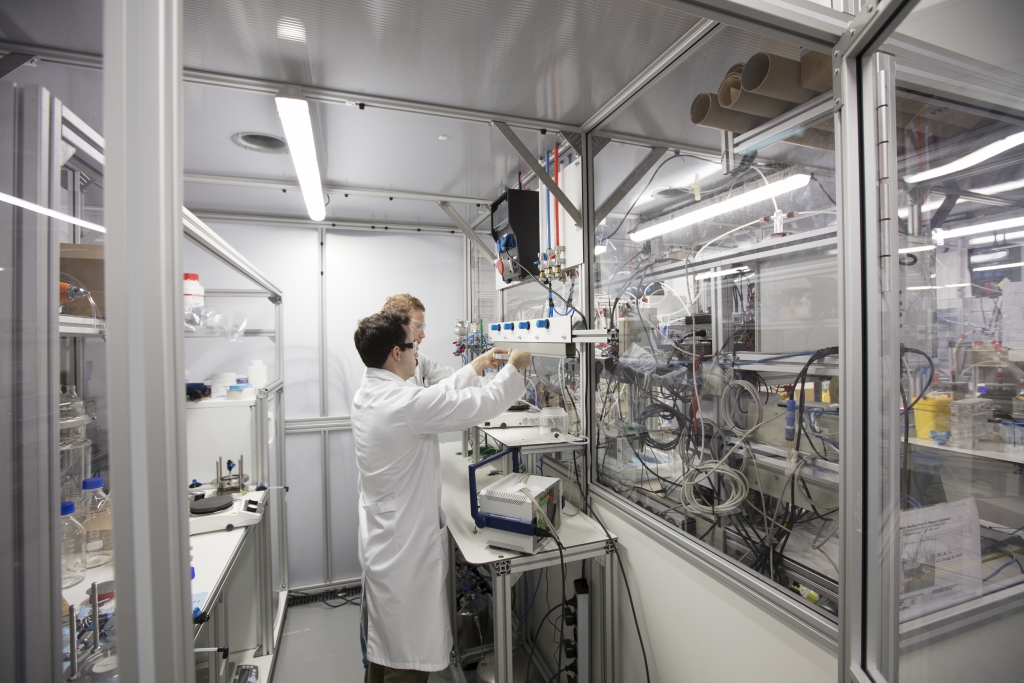Developing a robust optical multiparameter sensor platform for monitoring of micropollutants and nutrients in surface water
Contamination of water affects animal life and threatens the supply of clean drinking water in the future. Monitoring of water quality at water treatment facilities and in surface water will allow the identification of excesses and enable timely response. Currently, there are no sensors to measure low concentrations of micropollutants, e.g. hazardous pharmaceuticals, pesticides, and other chemicals, or nutrients such as phosphate and nitrate. TU/E develops biosensors for monitoring pharmaceuticals and nutrients in water. The sensors monitor functionalized particles in a miniature imaging system, whose motion responds to the presence of a specific micropollutant/nutrient. This enables continuous monitoring, is extremely specific, and consumes no reagents, which enables remote monitoring of surface water for e.g. eutrophication, and illegal discharges, but also the effectiveness of remediation techniques. This sensor can also monitor the micropollutant and nutrient concentration of sewage treatment facilities’ effluent, an emerging concern with increasingly stricter regulation.
Research challenges
Surface water consists of a complex (bio)chemical matrix and sensors are prone to fouling. Wetsus has been researching (minimizing) fouling. This project brings the expertise of TU/E and Wetsus together. Here we will translate the sensing principles developed at TU/E, into a multiplexed prototype for two analytes that achieves long-term optical sensor stability. This requires developments in (a) the miniaturization of the read-out optics to achieve a highly miniaturized interferometric microscope, (b) integration of actively cleaned membranes and antifouling coatings to keep the sensor functional for extended periods of time, and (c) multiplexing. Anticipated innovation is in a miniaturized interferometric microscope to monitor a range of particle sizes across a large field-of-view, developing coatings or actively clean filter membranes (with e.g UV-light, electrical potentials) in the fluidic system, co-integrated sensors (e.g. temperature, electrical conductivity) that will be used to enable multiplexed sensing and background calibration.
Your assignment
In this project, you will develop and field-test a completely new sensor platform for remote continuous monitoring of micropollutants and nutrients in surface water. You will investigate how this innovative sensing principle can be effectively applied in practice, resulting in a robust optical multiparameter sensing platform. You will develop and characterize the sensor in the lab, integrate it into a device, and field-test it. The project can be split into 4 parts: 1) Building and testing a Miniaturized interferometric microscope. 2) Creating a fluidic system that has a low fouling tendency or includes active cleaning. 3) Co-integration of conventional sensors and multiplexing of sensor outputs. 4) Field testing of the system. Wetsus houses an optical and analytical laboratory (a.o.) to support this research.
Your profile
You preferably have a background in Applied Physics, Physical Chemistry, or related, with an affinity for optics and chemical functionalization.
Keywords: Optics, material science, chemistry, continuous monitoring, micropollutants
Supervisory team: dr. P. (Peter) Zijlstra (associate professor) and dr. ir. A. (Arthur) M. de Jong (assistant professor), Molecular Biosensing for Medical Diagnostics, Eindhoven University of Technology (TU/e); dr. ir. R.M. (Martijn) Wagterveld, coordinator research theme Sensoring, Wetsus
Project partners: Sensoring
Only applications that are complete, in English, and submitted via the application webpage before the deadline will be considered eligible.
Guidelines for applicants: https://phdpositionswetsus.eu/guide-for-applicants/
